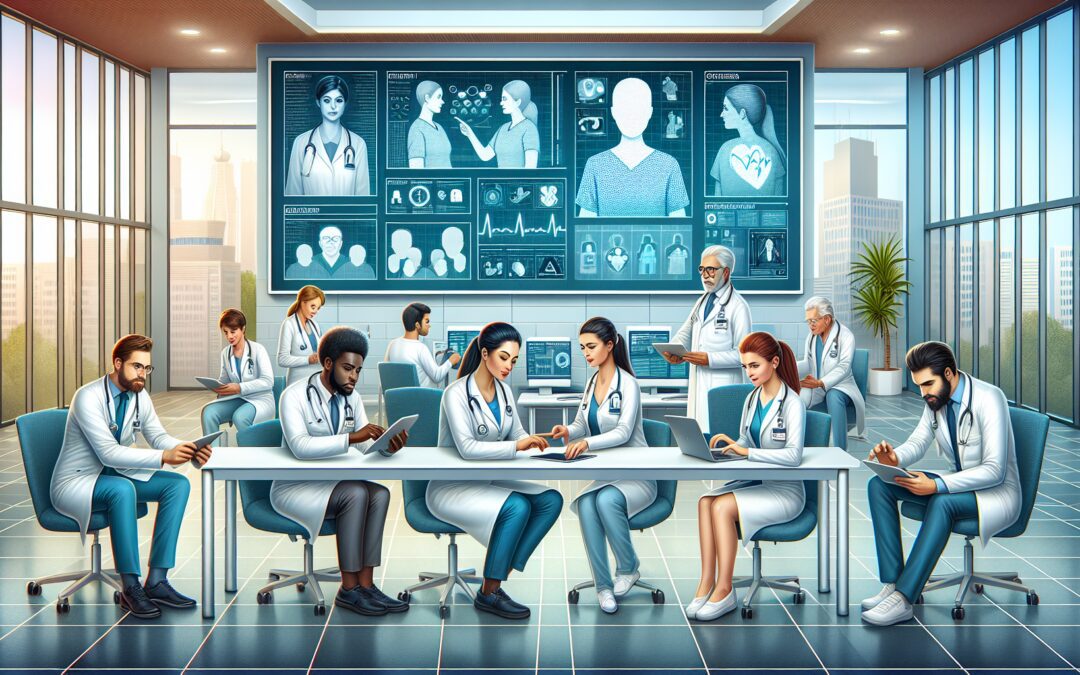Effective communication in healthcare is pivotal in enhancing patient outcomes. It spans various dimensions, including patient-provider interactions, communication among healthcare teams, and how information is shared across the healthcare system. Below, we explore the critical strategies that can significantly improve these interactions and, consequently, uplift patient care standards and outcomes.
Enhancing Patient-Provider Communication
Patient-provider communication is a cornerstone of healthcare. Ensuring that this communication is both effective and empathetic can drive significant improvements in patient outcomes. Here are key strategies:
- Active Listening: Providers must actively listen to patients’ concerns and symptoms to diagnose and treat effectively. This not only helps in building trust but also increases patient satisfaction.
- Use of Clear and Simple Language: Medical jargon can be confusing and intimidating. Using plain language enhances understanding and empowers patients to take an active role in their health management.
- Encouraging Questions: Providers should foster an environment where patients feel comfortable asking questions. This ensures that they fully understand their conditions and the prescribed treatments.
Improving Interprofessional Communication
Communication within healthcare teams is equally crucial. Miscommunications can lead to errors and negatively impact patient care. Implementing the following can mitigate these risks:
- Standardized Communication Protocols: Using tools like SBAR (Situation, Background, Assessment, Recommendation) can standardize the way information is handed off between professionals, reducing the likelihood of errors.
- Regular Briefings and Debriefings: These meetings help in ensuring all team members are on the same page regarding a patient’s care plan and progress. This is especially important in high-stakes environments like surgical units or intensive care.
- Technology Integration: Utilizing electronic health records (EHR) effectively ensures that every caregiver has access to the same information, facilitating better decision-making and continuity of care.
Utilizing Technology to Enhance Communication
Technology plays a prominent role in modern healthcare. Here are some ways in which technological tools can aid in improving communication for better patient outcomes:
- Telehealth: This allows for remote patient-provider consultations via video conferencing, improving access to care and enabling continuous care delivery, especially in rural or underserved areas.
- EHR Accessibility: Enhancing the accessibility and functionality of electronic health records can help patients and providers alike. Patients can access their medical histories and test results, aiding in more informed healthcare decisions.
- Mobile Health Applications: Apps can help patients track their health, schedule appointments, and even remind them to take their medications. This ongoing engagement can lead to better health management and outcomes.
Patient Education and Engagement
Empowering patients plays a critical role in improving outcomes. Educated patients can manage their health more effectively, leading to reduced readmissions and improved overall health. Strategies include:
- Educational Resources: Providing patients with resources about their conditions and treatments can help them understand their health better, leading to more informed decisions.
- Engagement Programs: These programs can include workshops, seminars, and other interactive sessions that engage patients in their healthcare journey. This engagement can increase adherence to treatment plans and preventive measures.
Conclusion
Improving communication in healthcare is an essential step towards enhancing patient outcomes. By focusing on patient-provider interactions, interprofessional team communications, maximizing technology use, and empowering patients through education, healthcare systems can achieve better results. These strategies ensure not only improved health outcomes but also enhance the overall patient experience, which is fundamental in the delivery of high-quality healthcare.


